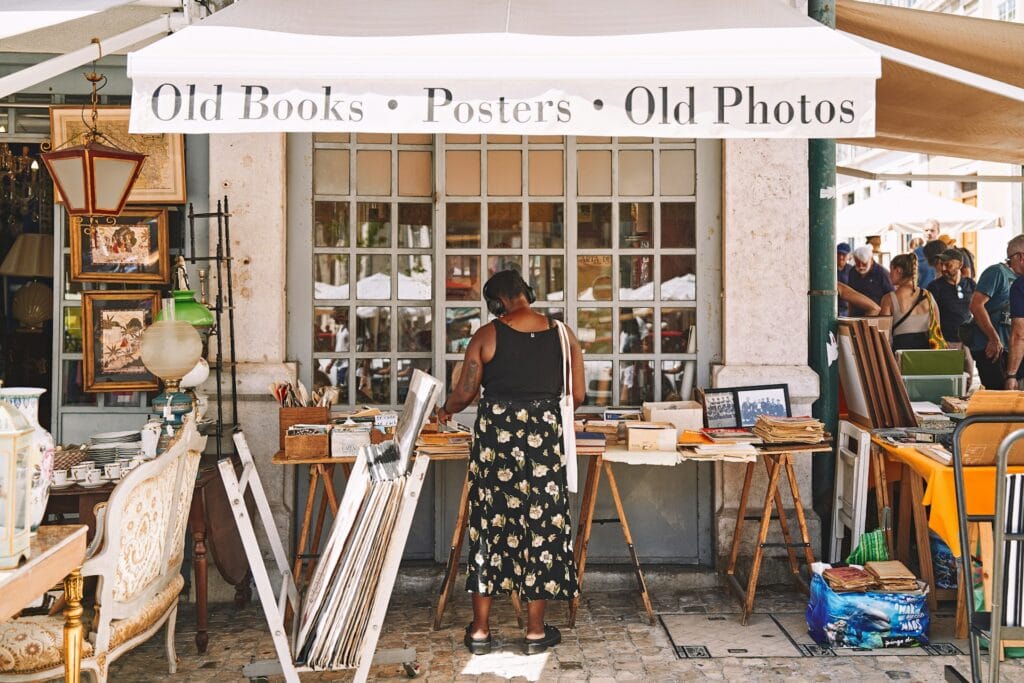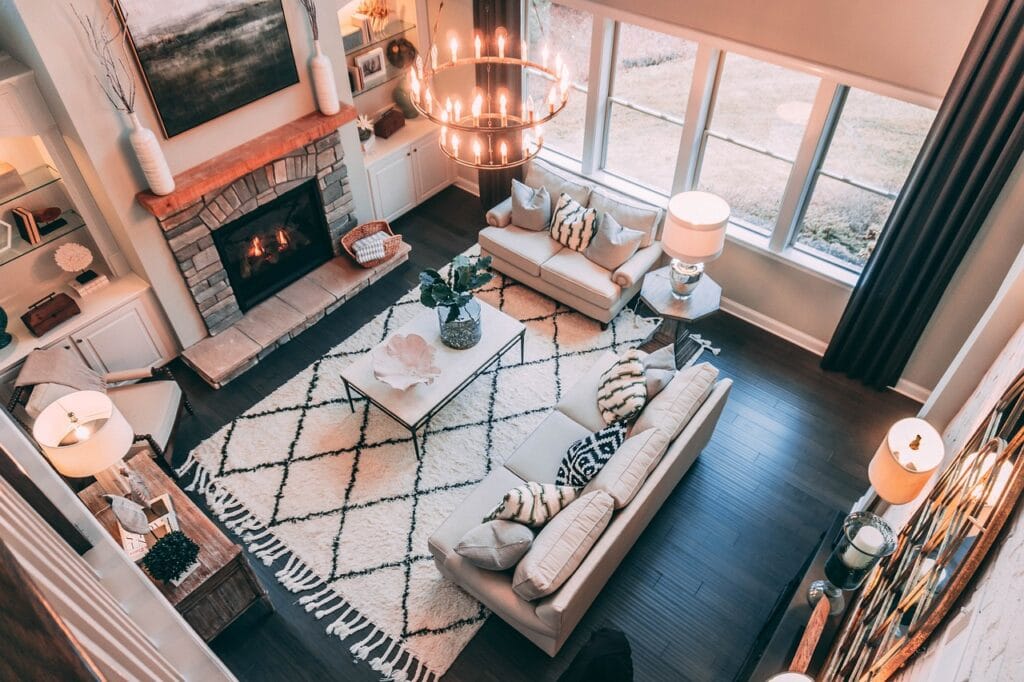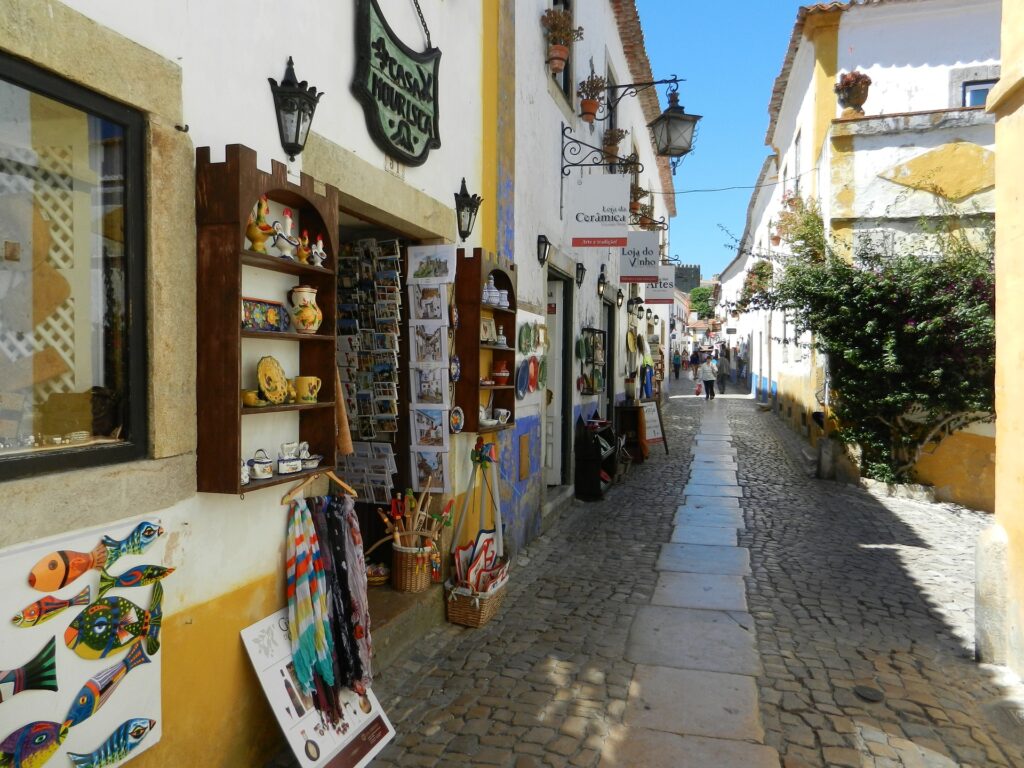Converting a shop into a residential property is becoming an increasingly common trend, especially in areas where retail demand has declined. With high streets seeing more vacant commercial units, property owners and developers are exploring new ways to repurpose these spaces and turning them into homes is one of the most practical options.
However, this kind of transformation isn’t always straightforward. It involves more than just interior design changes. There are strict planning rules, building regulations, and local authority requirements that must be followed before any work begins.
This guide will walk you through the key aspects of shop-to-residential conversions in plain and simple terms. You’ll learn which types of commercial properties are eligible for conversion, what permissions may be required, and how to ensure compliance with regulations. We’ll also explore the pros and cons of such a project, helping you decide if it’s worth the investment.

The beginning: What are Use Class E and C3?
In Portugal, buildings are classified based on how they are used. This helps the local councils manage towns and cities better. Two common classes are Use Class E and Use Class C3. Understanding these is important if you want to convert a shop into an apartment. Real Estate projects are regulated by IMPIC, which ensures construction work, licenses, and contracts meet Portugal’s legal rules and standards.
Use Class E refers to commercial properties. These are spaces used for shops, cafes, offices, and similar purposes. A building with this class cannot be used as a home without permission. If the space was once a store, it will likely fall under this category.
Use Class C3 is used for homes. This includes apartments, houses, and other places where people live. If you want to convert a shop into an apartment, your goal is to shift the class from E to C3. This change must follow local rules and may need approval from the city hall.
Portugal’s planning system requires owners to submit a request before starting any changes. You must check if the shop meets housing standards. These include proper light, air flow, room size, and access. You also need a license for habitability, called “Licença de Utilização.”
Some city areas may restrict changes to protect their character. You should speak to an architect or legal expert to avoid mistakes. Proper advice will help save time and money later.
In short, Use Class E is for shops, and C3 is for homes. To convert a shop into an apartment in Portugal, you must follow the correct legal steps. Always check local plans and get advice before you start the project.
Can Any Shop Be Turned Into an Apartment?
Not every shop in Portugal can be turned into an apartment. Some shops are in areas where housing is not allowed. Others may not meet the basic rules for living spaces. You need to check the local plan for that street or building.
If you want to convert a shop into an apartment, start by asking the city hall. They will tell you if housing is allowed in that area. Some zones are protected for business use only. Historic areas may also have extra rules.
Next, the shop must meet housing rules. These rules cover things like light, space, and access. If the shop is too small or has no windows, it may not pass. You also need a new license called “Licença de Utilização” for living use.
Even if the shop is empty, you can’t just move in. First, you must get legal permission to change its use. Then, you may need to hire a certified architect to submit a project. This project must follow all building and safety rules.
Shops inside larger buildings, like malls or ground floors of apartments, may face extra steps. You might need permission from the building’s other owners.
So, while many shops can be changed into homes, not all are allowed. Always check the rules before making any move. The Tax Authority in Portugal, known as AT, handles all tax-related matters, including property taxes during shop-to-home conversions. To convert a shop into an apartment, plan carefully and talk to the right people. This will help avoid delays, extra costs, or legal problems.

Main Rules to Follow for Shop Conversions
Converting a shop into an apartment in Portugal involves several legal and technical steps.
Legal and Planning Requirements
- Check the Municipal Master Plan (PDM): Ensure the property is in a zone that permits residential use. Some areas are designated exclusively for commercial activities.
- Submit a Change of Use Application: File a formal request with the local City Council (Câmara Municipal) to change the property’s designated use from commercial to residential.
- Obtain a New Usage License (Licença de Utilização): This license confirms the property’s suitability for residential purposes. Before buying a shop to convert, try this IMT calculator to find out your one-time property transfer tax costs.
- Condominium Approval: As of January 2024, prior approval from the condominium assembly is no longer required for converting a shop into a residence, unless the conversion affects common areas or the building’s façade.
Construction and Technical Standards
- Engage a Certified Architect or Engineer: A qualified professional must prepare and oversee the renovation project, ensuring compliance with all regulations.
- Adhere to Minimum Space Requirements: For instance, a studio apartment (T0) must have at least 35 m² of gross area.
- Ensure Adequate Natural Light and Ventilation: All living spaces must have direct access to natural light and proper ventilation.
- Meet Accessibility Standards: The apartment must be accessible to individuals with reduced mobility, complying with national accessibility regulations.
Post-Construction Obligations
- Notify the City Council Upon Completion: After finishing the renovations, submit a declaration to the City Council stating that the property complies with all residential standards.
- Await Municipal Inspection: The City Council has 20 working days to inspect the property. If no objections are raised within this period, the property is considered approved for residential use. Use this IMI simulator to estimate your yearly municipal property tax after converting a commercial unit into a home.

Which Parts of a Shop Can Be Converted?
When you want to convert a shop into an apartment, not every part of the shop can be changed. You must follow local rules and check the building layout. In most cases, the main area used for business can be turned into a living space. This includes the front shop floor where goods were sold or services were offered.
However, not all side or back areas are always suitable. Some storage rooms may be too dark or small. Spaces without proper windows or exits may not pass housing rules. The apartment must have safe access, enough air flow, and natural light. The Energy Certificate is required for all residential properties. After conversion, you’ll need one to show your home meets energy standards.
If the shop has a basement, it may be harder to convert. Basements often have no windows or direct exits. Local law may not allow people to live there unless special changes are made. You will need expert help to see if it’s possible.
Shared parts of the building, like common hallways or staircases, cannot be changed. These are for all owners or tenants to use. You cannot block access or take over shared space.
To legally convert a shop into an apartment, every part used for living must follow strict standards. The rooms must be large enough for daily use. There should be space for a kitchen, bathroom, and at least one bedroom or living area.
Before starting, check the shop’s blueprint and ask a licensed architect. They will guide you on which parts are allowed. With the right plan, you can use the space wisely and avoid future problems.
Other Commercial Buildings That Can Become Homes
In Portugal, it’s not just shops that can be turned into homes. Other commercial buildings may also be changed into living spaces. But the process depends on local laws, the type of building, and its location. You must check if the building is suitable and if changes are allowed.
Old office buildings are one option. Many of them are empty or underused. If they meet space and safety rules, they can become apartments. You will need to request a change of use at the city hall.
Warehouses are also used in some cases. These are large and open, which helps in planning new layouts. But they often need major changes like adding windows, plumbing, and heating. You must make sure they meet housing standards before any work starts.
Hotels, hostels, and guesthouses are sometimes turned into small apartment buildings. Since they already have rooms, toilets, and stairs, they may need fewer changes. But zoning rules still apply. You must check if long-term housing is allowed in that area.
Old schools, clinics, or bank buildings are other examples. If they are no longer in use, you can ask to convert them. But these buildings may have design limits. Some may need full redesigns to meet home safety codes.
To convert a shop into an apartment or change other buildings into homes, follow the legal process. Always get expert advice. This helps you avoid fines and makes sure your new home is safe, legal, and ready to live in.

Can a Listed Shop Be Turned Into a Home?
Converting a listed shop into a home in Portugal is possible, but it’s more complex. A listed building means it has cultural, historical, or architectural importance. These properties are protected by law, and changes to them are tightly controlled. You cannot make any major changes without special approval.
To convert a shop into an apartment in a listed building, you must first speak to the local City Council (Câmara Municipal). In most cases, you’ll also need approval from Direção-Geral do Património Cultural (DGPC), which is the national body that protects heritage sites. They will review your plans to make sure they do not damage the building’s character.
You cannot remove walls, change windows, or alter the façade without approval. Even small changes, like adding plumbing or insulation, may need permission. The process takes more time than normal conversions, and getting expert advice is important.
Hiring an architect with experience in heritage buildings is highly recommended. They can help you design the space within the legal limits. Your plan must follow all housing rules but also protect the building’s original style.
In some cases, only part of the shop may be approved for conversion. You may also have to use certain materials or keep old design features.
So yes, you can convert a shop into an apartment in a listed building, but the process is slower and stricter. Always follow the proper steps to avoid delays or fines, and never begin work before getting the right approvals.
What to Do Before You Start the Conversion
Before you start to convert a shop into an apartment in Portugal, there are a few important steps to take. Planning ahead can save you time, money, and legal trouble later. Here’s what you should do first:
- Check the Zoning Rules: Visit your local City Council (Câmara Municipal) to find out the shop’s zoning classification. Some areas only allow commercial activity. You need to make sure the zone allows residential use or can be changed.
- Request the Property’s Use License (Licença de Utilização): This document shows what the building is currently approved for. If the use is listed as commercial, you must apply to change it to residential. You cannot legally live in the space until this is updated.
- Speak to a Certified Architect or Engineer: You’ll need a detailed project plan to submit with your application. The design must follow safety, health, and space laws. The architect will check the size, windows, plumbing, and structure to see what’s possible.
- Check for Building Restrictions: If the shop is part of a shared building or a listed property, there may be extra rules. You might need approval from the building association or cultural heritage office.
- Apply for a Change of Use: This is a formal request to the City Council. Once approved, you can begin construction. Without it, the project is illegal.
- Prepare a Budget: Renovating a shop into a home can get costly. Plan for permits, expert fees, and construction work.

Do You Always Need Planning Permission?
Not always. Some changes are allowed under permitted development rules. But these rules still have limits.
If the shop is in a protected area or listed, you still need full permission. If you plan to change the outside look or add extra space, you may also need it.
Check with your local planning office. They will tell you what type of approval is needed. Never start work without written permission.
Benefits of Converting Shops into Homes
More Affordable Purchase Prices
Shops are often cheaper to buy than residential properties in the same area. Since they are not always in high demand, sellers may offer lower prices. This makes them a smart choice for first-time buyers or investors.
Good Locations
Most shops are in central areas, close to public transport, schools, markets, and health services. Converting one into a home means you can live in a well-connected location where new apartments may not be available.
Add Value to the Property
Once you convert a shop into an apartment, its value usually increases. A legal and well-planned conversion turns a commercial space into a livable home, which appeals to many buyers or renters.
More Housing Supply
Turning shops into homes helps solve the housing shortage. It gives a new use to unused spaces and brings more people into city centers, which can support local businesses.
Custom Layout Options
Shops often have open layouts. This gives you freedom to design your home as you like. You can create a modern apartment that fits your style and needs.

Drawbacks of Shop Conversions
Complicated Legal Steps
Changing a shop into a home is not a simple task. You must get legal approvals, apply for a change of use, and follow strict building rules. Missing any step can delay your project or lead to fines.
Expensive Renovation Costs
Shops are built for business, not for living. You may need to install new plumbing, heating, windows, and even change walls. These changes can cost more than expected, especially in older buildings.
Poor Natural Light and Ventilation
Many shops are on the ground floor with small windows or none at all. This can make it hard to meet the rules for light and air. Without changes, the space may feel dark or closed in.
Limited Privacy
Shops are often near busy streets or shared building entrances. After conversion, your apartment might still feel exposed to noise, traffic, or passersby.
Restrictions in Shared Buildings
If your shop is part of a larger apartment block, you might face rules from the building’s other owners. These can limit what changes you can make or how you can use the space.
Reviving the Town Centre: Turning Empty Shops into Homes
Converting empty shops into homes can be a smart way to bring life back to town centres in Portugal—but only if done thoughtfully. Many urban areas across the country have vacant storefronts due to changing shopping habits. With more people buying online, small local shops often struggle to survive. Transforming these unused spaces into residential units could be part of the solution.
When people live in these spaces, the streets stay active. Residents create daily demand for cafés, bakeries, hairdressers, and fresh markets—reviving the local economy and encouraging new businesses to open. A lively neighbourhood naturally attracts more foot traffic, benefiting the community as a whole.
It also improves the visual appeal and safety of town centres. Abandoned shops can become run-down or vandalized, while occupied homes are usually well-maintained. This shift helps clean up neglected areas and makes them feel more secure.
However, balance is key. If too many shops are converted, there may be little room left for the essential services that give town centres their purpose. A thoughtful mix of residential space and active commercial life is crucial.

why to work with us
We offer a curated selection of investment opportunities in Portugal and act as an independent buyer’s agent—helping you find the option that best fits your goals.
Our team provides full due diligence support to ensure your investment is secure and well-informed. If you plan to rent out your property, we also connect you with our trusted property management partners to handle everything locally.
With us, your investment in Portugal is safe, smart, and stress-free.
Looking to Invest in Portugal?
Explore our newest listings below!
Frequently Asked Questions About how to convert a ship into an apartment
Can any shop be turned into an apartment?
Not every shop can be converted. Zoning laws, building structure, and local council approval all affect what changes are legally allowed.
What is the first step in the conversion process?
Start by checking the local zoning plan and asking the city council if the shop can be used for housing.
Do I need permission to convert a shop?
Yes, you must apply for a change of use and submit your renovation plans to the city council for approval.
What documents are needed for the conversion?
You’ll need the original usage license, new architectural plans, proof of property ownership, and a change-of-use application form.
How long does the approval process take?
If all documents are correct, approval usually takes about 30 to 60 days depending on your local authority’s response time.
Do I need to hire an architect?
Yes, a certified architect is required to design and submit plans that follow all Portuguese housing and safety laws.
Are there size requirements for shop conversions?
Yes, the apartment must meet minimum space standards, including room size, light, and ventilation guidelines.
Can I convert a shop in a shared building?
Yes, but extra rules may apply. You might need approval from the building’s management or co-owners.
What if the shop is in a heritage area?
If the shop is listed or in a protected zone, extra permissions from heritage authorities may be required.
